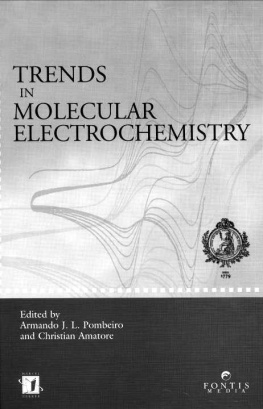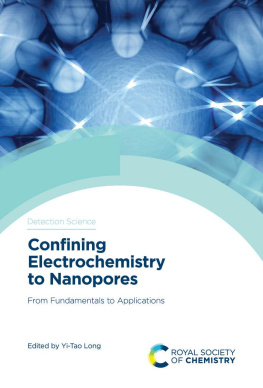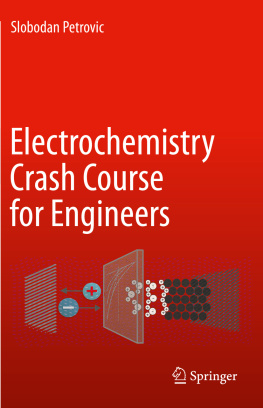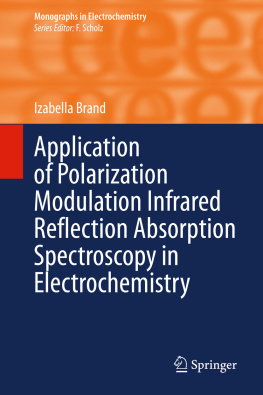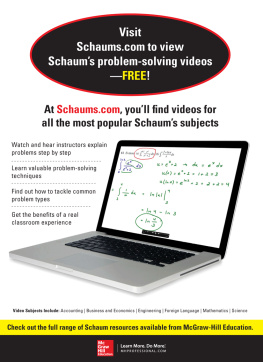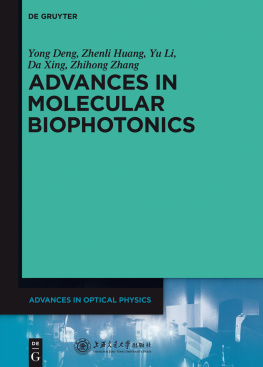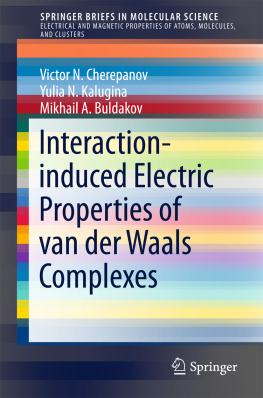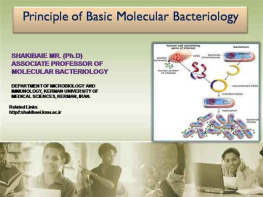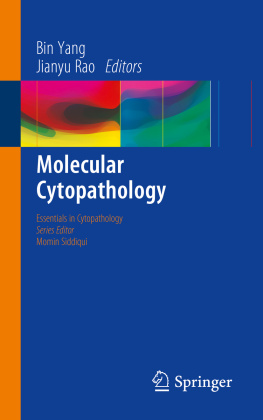TRENDS
IN MOLECULAR
ELECTROCHEMISTRY
TRENDS
IN MOLECULAR
ELECTROCHEMISTRY
Edited by
Armando J.L. Pombciro
Co-Editor
Christian Amatorc




Contents
xi
xiii
REDOX AND OTHER MOLECULAR PROPERTIES
CHAPTER I
Piero Zanello and Emanuela Grigiotti
CHAPTER 2
Jon A. McCleverty and Michael D. Ward
MOLECULAR ELECTROACTIVATION AND ELECTROCATALYSIS
CHAPTER 3
A. B. P. Lever and Yonglin Ma
CHAPTER 4
Wo4kang Kahn
CHAPTER 5
Armando J. L. Pomheiro and M. Fcitima C. Guedes (la Silva
BIOELECTROCHEMISTRY
CHAPTER 6
Dejana Djuricic, Barn D. Fletning, H. Allen O. Hill and Yanni Tian
CHAPTER 7
Christopher J. Pickett
SUPRAMOLECULAR ELECTROCHEMISTRY
CHAPTER 8
Massimo Marcaccio, Francesco Paolucci and Sergio Raffia
CHAPTER 9
Didier Astruc, Marie-Christine Daniel, Svlvain Nlate, Jaime Ruiz
CHAPTER 10
Masa-aki Haga and Tomona Yutaka
SPECTROELECTROCHEMISTRY
CHAPTER 11
Enzo Alessio, Simon Duff, Marie Elliot, Elisabetta Iengo, Lorna A. Jack, Kenneth G. Macnamara, John M. Pratt and Lesley J. Yellowlees
UNCONVENTIONAL ELECTROCHEMISTRY
CHAPTER 12
Christian Amatore, Stcphane Arbault, Emmanuel Maisonhaute, Sabine S_unerits, and Laurent Thouin
CHAPTER 13
Frederic Barriere, Robert J. LeSuer; William E. Geiger
CHAPTER 14
Alan M. Bond
CHAPTER 15
Maurice L'Her and Vladimir Sladkov
Introduction
Chemists increasingly apply electrochemical methods to the investigation of their systems, in particular towards a better understanding of molecular properties, the exploration of chemical reactions involving electron-transfer (ET), the initiation of further reactions by ET, the kinetic measurements and the establishment of the reaction mechanisms, as well as the synthesis (electrosynthesis) of desired products.
This book highlights the state-of-the-art in the application of electrochemistry, by taking an interdisciplinary approach to the study of both static and dynamic molecular properties, mainly of coordination compounds, but including inorganic, bioinorganic and organometallic complexes. Supramolecular systems and metalloenzymes are also covered. The principles and approaches are often also valid for organic systems which are illustrated in various contexts.
This book is addressed to those chemists interested on the application of electrochemical techniques to their systems, as well as to electrochemists who have had their attention drawn to chemical problems. This work is therefore of certain value for experienced scientists as well as for relative newcomers. Addressed to senior researchers, it is also of interest to postgraduates and, in some aspects, to advanced undergraduates.
To some extent, it updates the previous book entitled "Molecular Electrochemistry of Inorganic, Bioinorganic and Organometallic Compounds" (NATO ASI Series C385, Kluwer, Dordrecht, 1993), edited by one of us (AJLP), that appeared approximately 12 years ago following a NATO Advanced Research Workshop (ARW) on that field in Sintra, Portugal, in 1992. This pioneering conference, also organized by one of us, was followed, since 1998, by other regular meetings (1998, 2000, 20002), held in Siena, Italy (organized by Prof. P. Zanello), on the same overall field, which also comprised educational purposes.
There is undoubtedly a rapidly increasing interest on the field and on its expansion through the use of modern concepts and unconventional approaches, which in our view justified the preparation of this new volume which provides an updated overview of the field about one decade after the publication of the above NATO ARW book.
The contents of this new book were recently presented at a symposium on "New Trends in Molecular Electrochemistry", organized by the Academy of Sciences of Lisbon within its "Frontiers of Knowledge" series, held at its premises.
The book deals, in an interdisciplinary approach, with the developments achieved in areas such as:
(i) Redox and other molecular properties (electronic, optical and magnetic properties; electrochemical properties structure relationships; metalmetal interactions; mixed valence compounds, etc.).
(ii) Molecular electroactivation and electrocatalysis (reactions induced by ET).
(iii) Bioelectrochemistry (metalloenzymes).
(iv) Supramolecular electrochemistry (supramolecular architectures, metallodendrimers and molecular devices)
(v) Spectroelectrochemistry.
(vi) Unconventional electrochemistry (ultrafast electrochemical techniques, new types of supporting electrolytes, electrochemistry without added electrolyte, ET through the liquid-liquid interface).
Therefore it covers both static and dynamic aspects, the former dealing mainly with structures and their relationships with particular properties and the latter concerning reactivity, kinetics and mechanisms of a wide variety of systems mainly within the broad filed of"inorganic"coordination chemistry (including also organometallic, supramolecular, bioinorganic and metalloenzyme chemistries) and, in a number of cases, also with illustrations in organic chemistry.
We acknowledge the authors of the various chapters for having accepted our invitation and for their so valuable and high quality contributions, as well as Dr. Fred Fenter (FontisMedia) for his continuous encouragement and highly professional assistance in the publication of the book. Thanks are also due to the Academy of Sciences of Lisbon, in particular to its Presidents, Prof. J.M. Toscano Rico and Prof. J.V. de Pina Martins (of the Classes of Sciences and Letters, respectively, who have been swapping the Presidency and Vice-Presidency along the last years) and Treasurers, Prof. F.R. Dias Agudo (also coordinator and representative of the international affairs board) and, recently, Prof. A. Torres Pereira, and to the President of the High Studies Institute (Prof. M. Jacinto Nunes), for approving and kindly supporting the initiative.

Preface
This volume is the first of the resumed "Frontiers of Knowledge" series, initiated to mark the bicentennial anniversary of the foundation (on December 24th, 1779, by Queen Maria 1) of the Academy of Sciences of Lisbon. For the presentation and discussion of the contents of the book, still in preparation, a symposium on "New Trends in Molecular Electrochemistry" was held, within that series, at the Academy (September 16-20th, 2003), together with the XII Meeting of the Portuguese Electrochemical Society covering all fields of Electrochemistry.

